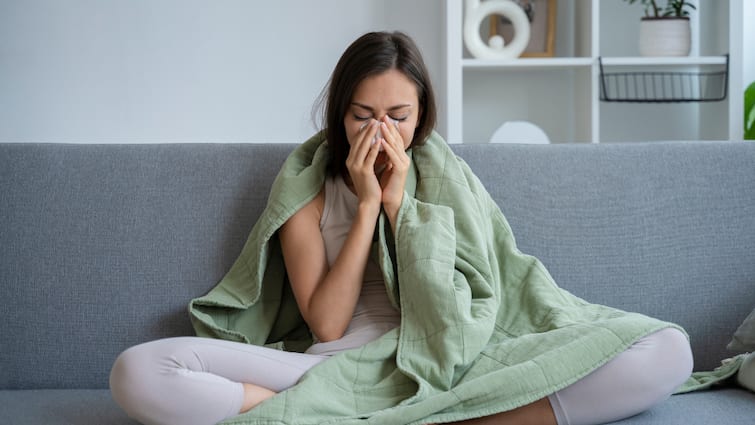(By Dr. Sujatha Ramesh)
The major outdoor allergens in this season are weed pollens, particularly Parthenium and related species, along with grass pollens. As the temperature drops, people naturally spend more time indoors, which increases exposure to indoor allergens, especially house dust mites. These microscopic organisms feed on human skin flakes and thrive in warm, humid environments such as mattresses, carpets, sofas, and upholstered furniture. Though invisible to the naked eye, their presence can significantly aggravate allergy symptoms.
ALSO READ: Sinus, Bronchitis, Or Just A Cold? What Tests Can Tell You This Winter
How To Reduce Exposure Indoors And Outdoors
To minimise exposure, cleaning and hygiene play a crucial role. All bed linen including bedsheets, blankets, and pillow covers should be washed once a week in hot water. Avoid woollen blankets, comforters, and quilts, as they are ideal breeding grounds for dust mites. Instead, opt for washable fleece blankets.
Mattresses should be placed in the sun regularly, and using mite-proof mattress and pillow encasings is highly effective. Maintaining clean, dry interiors and minimizing clutter can also help reduce dust accumulation.
When it comes to outdoor exposure, try to keep bedroom windows closed, especially in the early morning when pollen levels are highest. Wearing a mask while travelling or spending extended time outdoors can prevent pollen inhalation.
Prevention And Long-Term Management
Another key preventive step is getting an annual influenza vaccine, as viral infections can worsen allergy and asthma symptoms. It’s also wise to consult an allergy specialist who can identify specific triggers through tests.
For long-term management, allergen-specific immunotherapy available as injections, drops, or tablets helps the immune system build tolerance by generating protective antibodies. This approach can significantly reduce symptoms over time.
By taking preventive measures, maintaining good hygiene, and seeking timely medical care, parents can help children stay healthier and breathe easier during the challenging October allergy season.
Dr Sujatha Ramesh is Consultant- Paediatric Allergy & Immunology at Manipal Hospital Yeshwanthpur
[Disclaimer: The information provided in the article, including treatment suggestions shared by doctors, is intended for general informational purposes only. It is not a substitute for professional medical advice, diagnosis, or treatment. Always seek the advice of your physician or other qualified healthcare provider with any questions you may have regarding a medical condition.]
Check out below Health Tools-
Calculate The Age Through Age Calculator



